TEFL in Turbulence: Teaching English and Navigating Life in Sudan
How it all began...
In April 2008, I boarded a plane bound for Khartoum, Sudan, not quite knowing what awaited me in a country so often misunderstood. Sudan was no tropical paradise—it was a land of sandstorms, silence, extremes, and surprises.
It was here that I wore two hats: that of Assistant Director and ESP Facilitator at Winner Language Institute, and that of a wide-eyed traveler exploring the dusty pulse of Khartoum on foot, in tuk-tuks, and even under arrest.



📚 Winner Language Institute – ESP, Oil Companies & In-House Training
My primary role at Winner Language Institute was designing and delivering custom English for Specific Purposes (ESP) courses—mainly to oil industry and telecom professionals, but also to government ministries.
Key highlights:
Delivered in-house training at company offices via minibus alongside Sami, my trusted Sudanese driver.
Clients included CPECC Sudan (China Petroleum Engineering & Construction Corporation) and MTN Sudan.
Designed curricula specific to client needs: engineering terms, health and safety communication, corporate emails, and telecommunication lingo.
Ran teen summer camps at the institute, screening English movies like Sense and Sensibility as learning tools.
Lived above the school in a scorching rooftop apartment—complete with one loyal, air-conditioning-loving cat named Archie.
We weren’t just teaching—we were building linguistic bridges in a geopolitically tense environment.

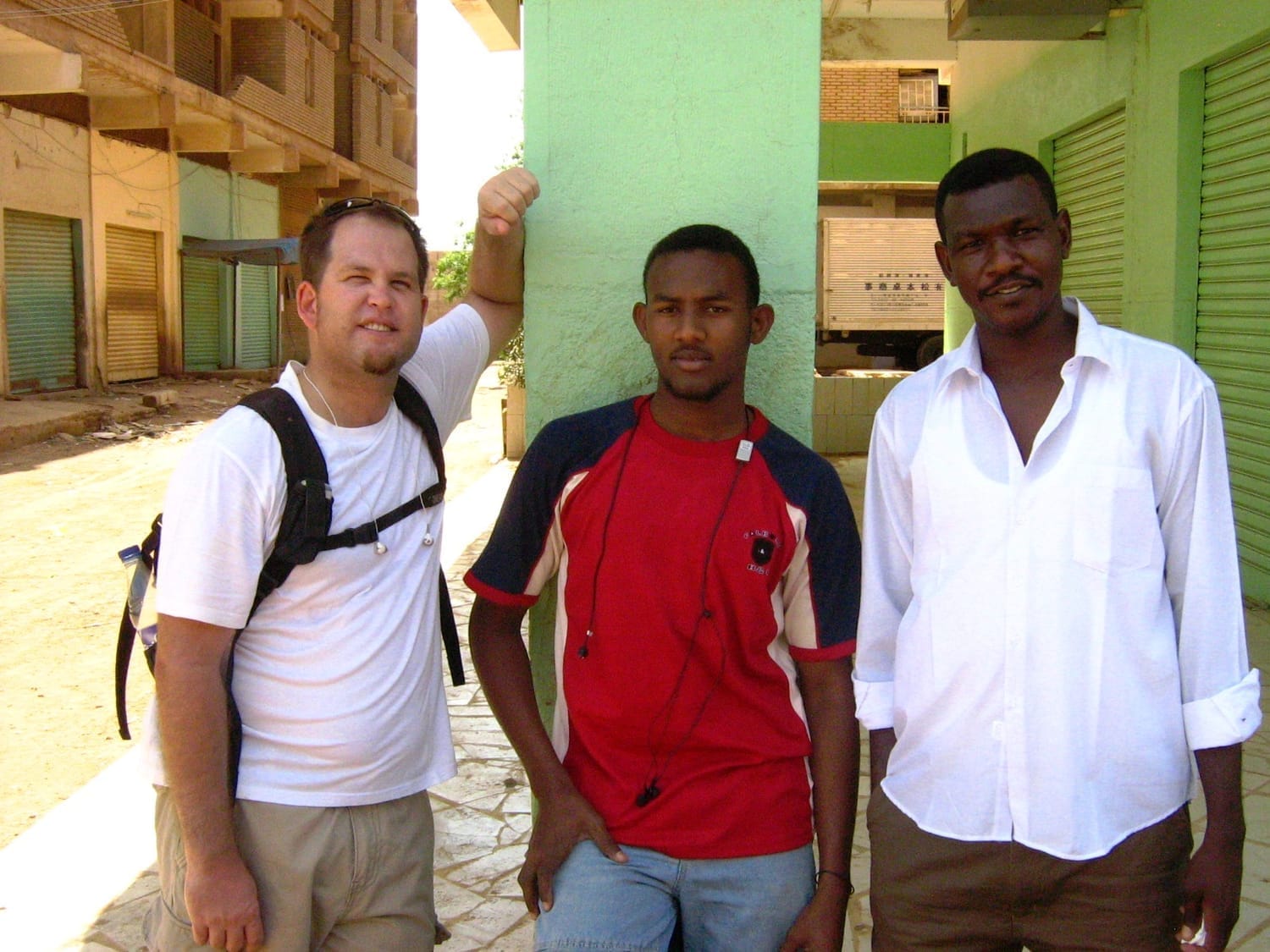

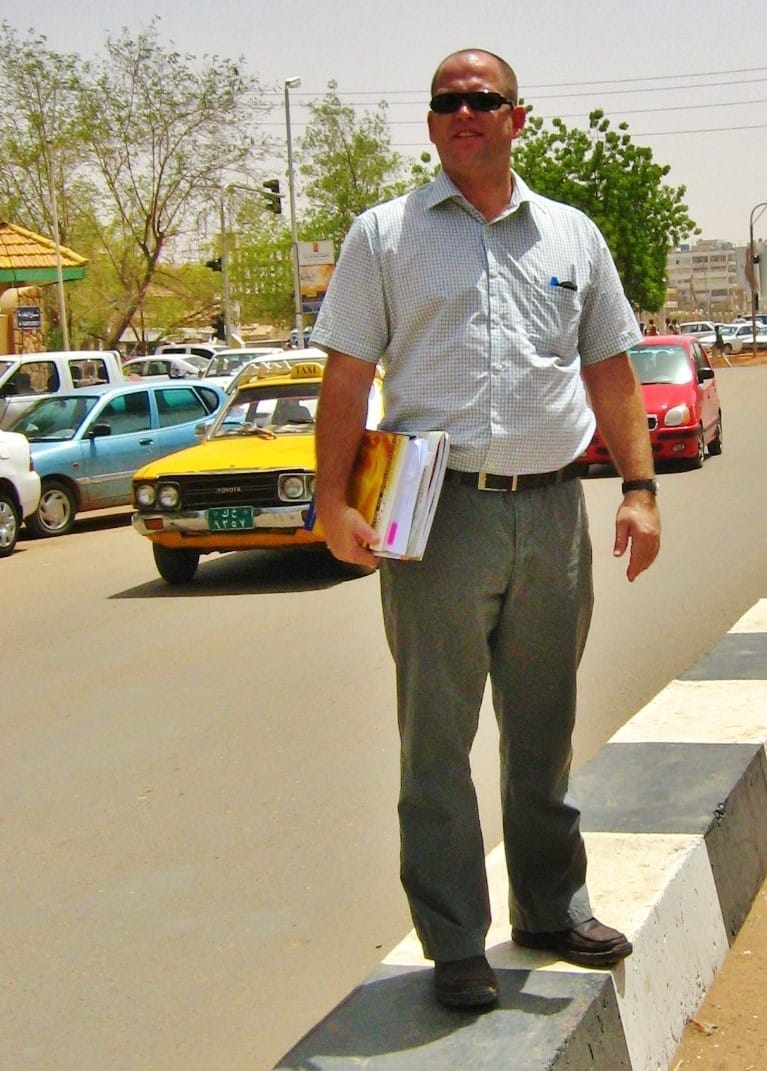

☕ Daily Life in Khartoum – Dust, Hospitality, and Tea Boys
Every day in Khartoum was a balancing act between restriction and richness:
Simon, our gentle Southern Sudanese tea boy, served hyper-sugary tea in the mornings.
I jogged and walked the Nile Corniche in the evenings, capturing sunsets, brickmakers, farmers, and fishermen on camera—often discreetly to avoid arrest.
I got around in Amjads, Rakshas (Sudanese tuk-tuks), and on foot. Picture Cuba—but with Toyota Corollas stuck in the 1980s.
Shopping meant navigating bustling souqs in Omdurman and Khartoum North with spices, fruit juice stands, and textile chaos.
Despite the war-torn image, locals were warm, kind, and curious. They offered meals, guidance, and companionship to this wandering foreign teacher with a camera and a cause.







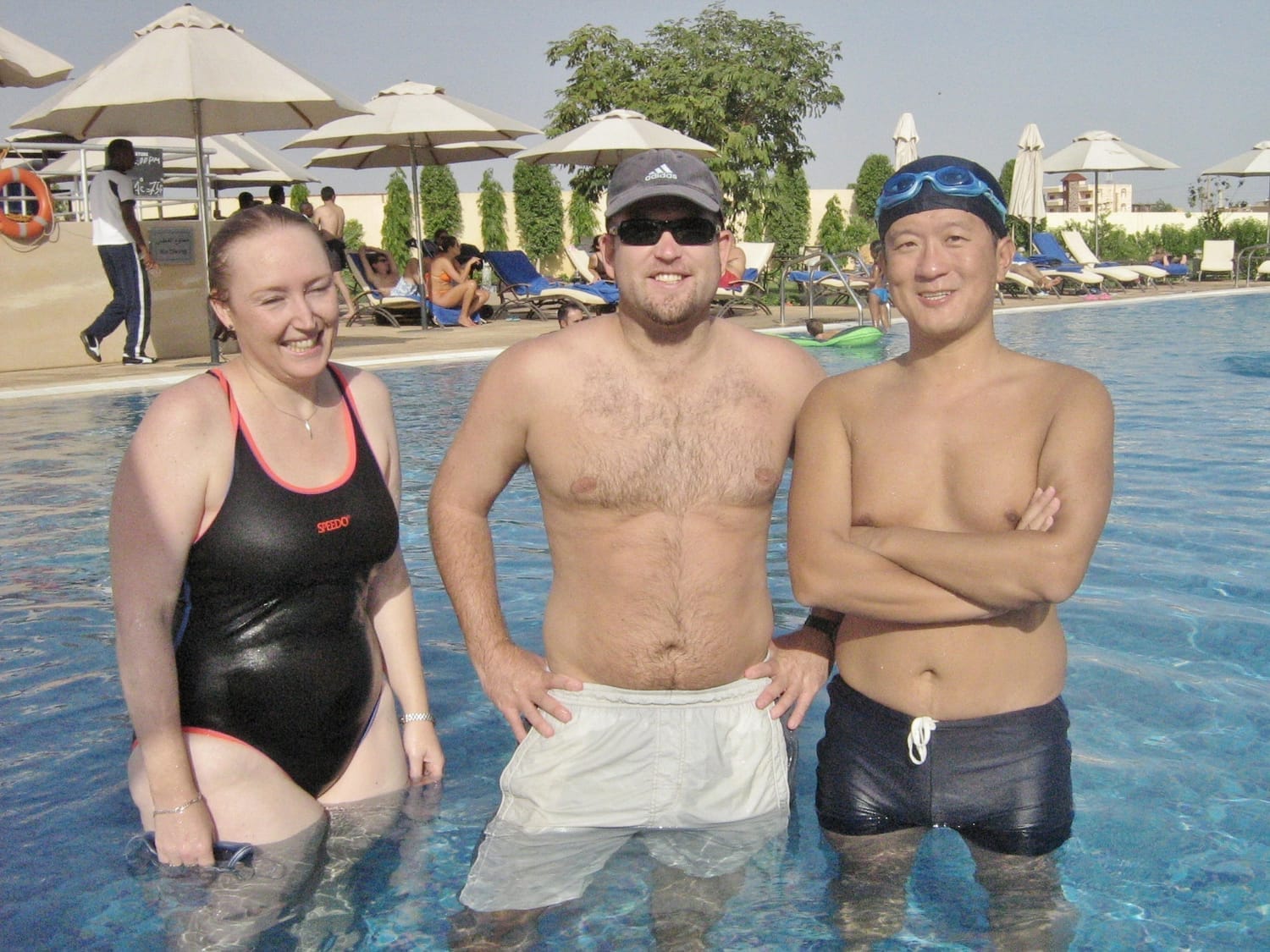

📸 Espionage or EFL Teacher?
Photography in Khartoum was not for the faint-hearted. Attempting to capture railway bridges, Nile crossings, or government buildings could lead to arrest—as I learned firsthand. One officer accused me of working for the BBC.
I was detained for espionage, then released after explaining I was an English teacher.
From then on, I shot pictures from the hip, gunslinger-style. Every image of Khartoum’s bridges, streets, or tuk-tuks was a risk worth taking to tell this story.



🐪 Cultural Contrasts: From Tuti Island to Camel Farms
When not teaching, I explored Sudanese life in all its contrasts:
Rode water taxis to Tuti Island, where the White and Blue Nile meet.
Visited camel farms, crossed flooded farmlands, and discovered makeshift seasonal villages along the Nile.
Spent evenings at expat clubs, Syrian restaurants, and unique haunts like The Beatles Café (yes, it had a VW Beetle sticking out of the wall).
Experienced life in Beverly Hills—Sudan’s affluent district—with villas juxtaposed against sand and poverty.
Tuti Island, where the White and Blue Nile converge, was a place of peace. Only accessible by ferry or the Tuti Bridge, the island offered a rare glimpse into Sudan’s rural heart—just minutes from downtown Khartoum.
There, I:
Photographed fishing boats against sun-drenched skies
Wandered dirt paths with farmers and children
Saw where Sudanese city life gave way to agricultural simplicity
Tuti was a metaphor for Sudan itself: ancient, complex, quietly beautiful.
It was a city of disparities and dignity, of spices and silence, of restrictions and freedom.










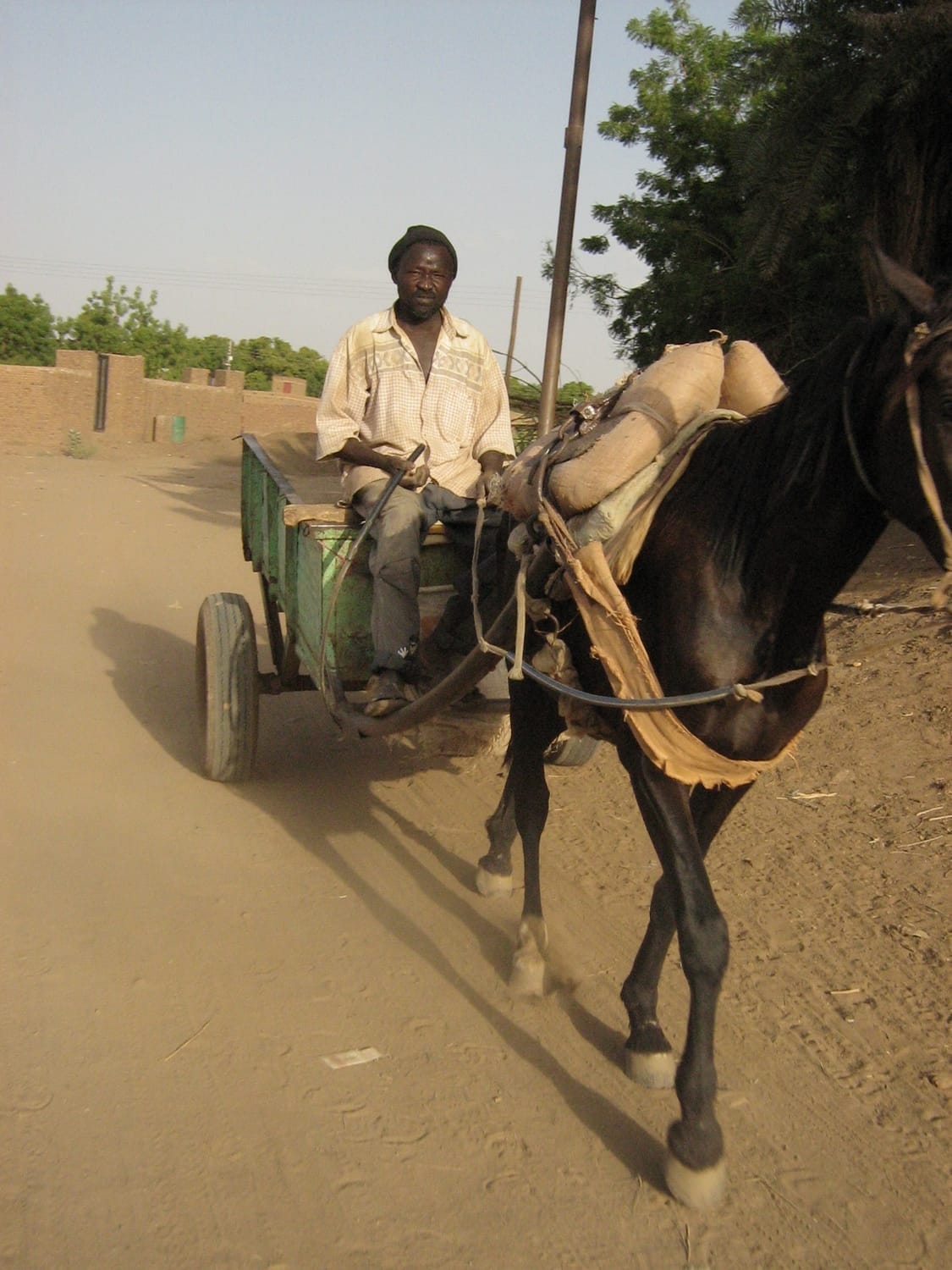
🚙 Life Off the Beaten Track: Khartoum’s Contrasts and Characters
Living in Buri, a residential suburb of Khartoum, gave me a front-row seat to the contrasts that define the city. Some days I’d be walking past makeshift farm worker huts on the floodplain; other days, I’d find myself lounging poolside at the Al Salam Rotana Hotel, invited by my Chinese students who were club members.
These juxtapositions—dust and chandeliers, tea boys and oil execs—were part of daily life.



🏞️ Nile Walks, Brickmakers, and Flood Cycles
I often jogged or walked along the Nile Corniche, dodging tuk-tuks and posing with curious teens in donkey carts. One recurring image burned into memory was seasonal brickmakers working with clay beside the river, while wealthy families watched sunsets from across the Nile in Beverly Hills villas.
In flood season, the farmland near my villa disappeared underwater. Makeshift homes were abandoned. Then, as the waters receded, fishermen returned, casting nets where tomatoes once grew.





🌆 Social Layers: From UN Clubs to Street Tea
Khartoum’s expat social scene was a throwback to colonial days—clubs, cocktail nights, and private house parties, often organized by UN, WFP, and NGO workers. While many genuinely served noble missions, others came to escape the restrictions of their home countries.
I dipped in and out of both worlds:
Sipped fruit juice in Khartoum North’s bustling souqs
Ate shawarma and baklava at Syrian restaurants
Grabbed tea with Chinese oil workers, speaking in Mandarin
Shared gospel at underground expat house churches
The Beatles Coffee Shop, complete with a VW Beetle sticking out of the wall, was a favorite haunt—a surreal mix of expat kitsch and Sudanese hospitality.


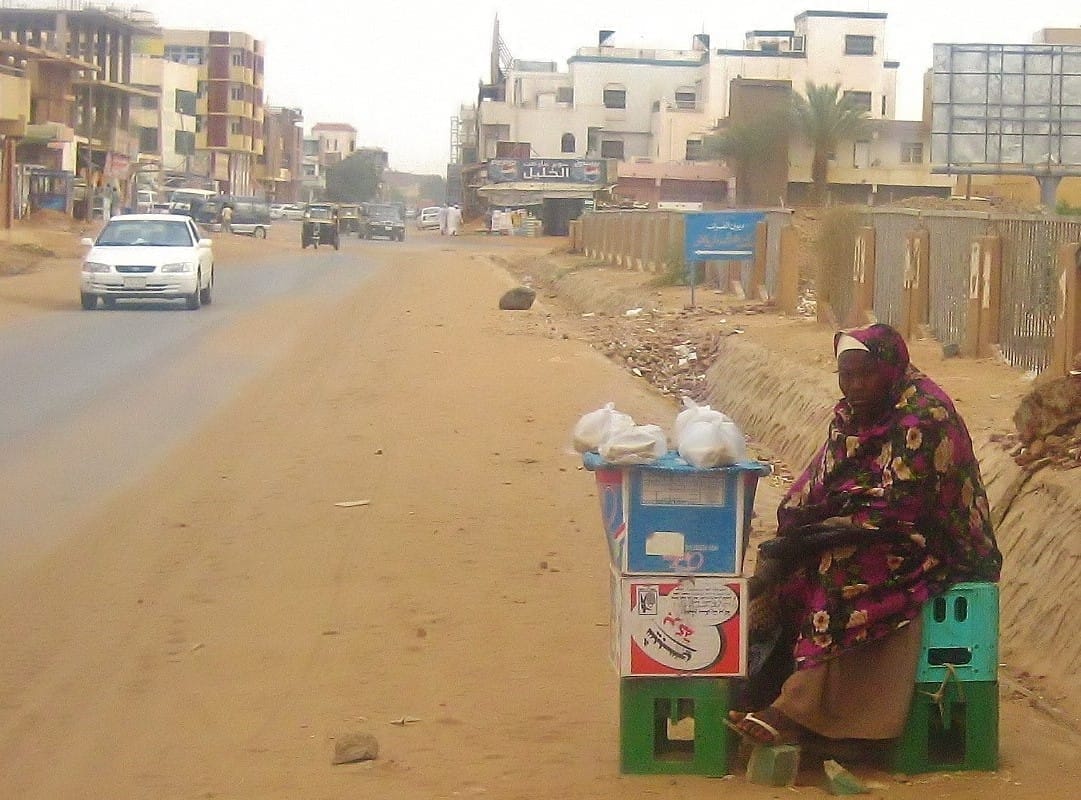

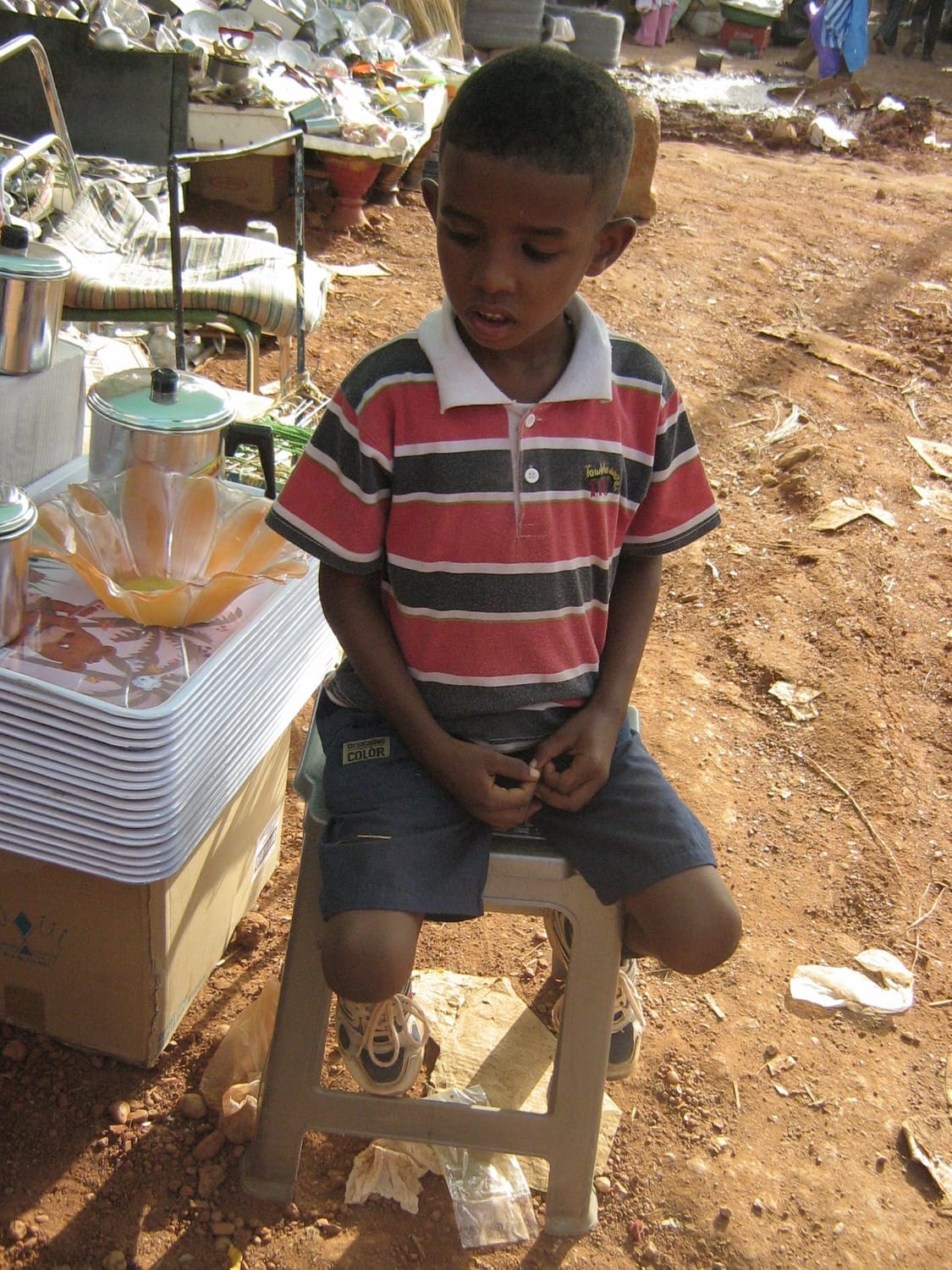

🌍 Living on the Edge: Danger, Discipline, and Deep Insight
Sudan in 2008 wasn’t the easiest place to live. The civil war was still active, and the International Criminal Court had indicted the president. You didn’t just walk around snapping selfies or chatting politics with strangers.
But amidst the tension:
I found faith communities, NGO friends, UN workers, and generous Sudanese families.
I experienced extreme hospitality, unforgettable landscapes, and a rare deep dive into expat life at its most real.
Sudan didn’t just challenge me—it refined me. It reminded me of the power of language to bridge cultures, and the privilege of being an educator—even in the unlikeliest of places.




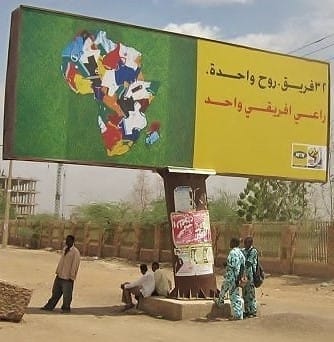




✈️ From the Heat of Sudan to the Hidden Gem of Oman 🇴🇲
After six intense months in Sudan, I packed my bags and boarded a flight to a country that, honestly, most people couldn’t point to on a map. “Oman...? Never heard of it,” my girlfriend said, before rushing off to Google it. 😄
But little did we know, this unfamiliar place would change our lives.
🌄 A few months later, she came to visit.
💍 Not long after, we tied the knot back in South Africa.
🌍 And then… we returned together, starting our married life in the quiet desert town of Ibri, Oman—where I began lecturing and teaching English at the local College of Applied Sciences.
Remote, raw, and real—Ibri was nothing like the world we knew, but it became the backdrop of our next big chapter: marriage, purpose, and teaching in the heart of rural Arabia.
Read more about our stay in Oman

HEY, I’M HENRY
Hi, I’m Henry Lilienfield, a TEFL veteran with teaching experience across China, Taiwan, Oman, Saudi Arabia, Iraq, South Africa, and online. With a law degree, two post-grad qualifications in Education Management and Development Studies, and a Level 5 TEFL Diploma, I bring deep knowledge and a practical approach to everything I teach—whether it’s English lessons or how to start your own online teaching business.



JOIN MY MAILING LIST
© Henry English Hub 2025 -www. henryenglishhub.com
